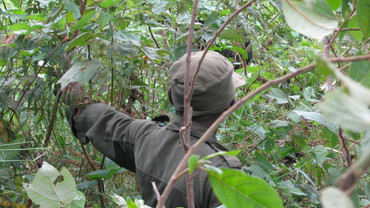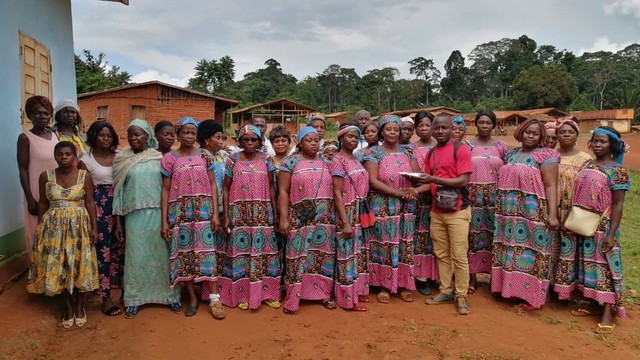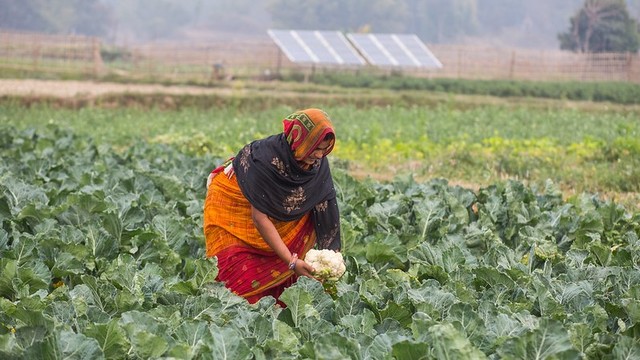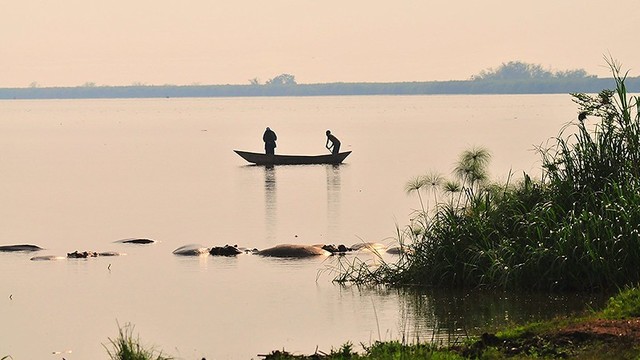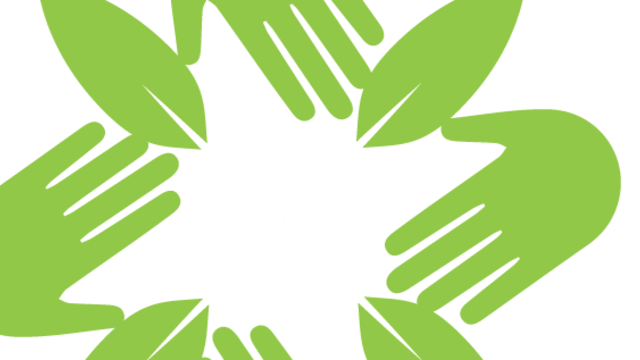PCLG: a history of the learning group
The People and Conservation Learning Group (PCLG) was established in 2005 as an international network of organisations to promote dialogue and share information on the links between biodiversity conservation and poverty alleviation.

Mountain Gorilla in Bwindi National Park, Uganda (Photo: Cristoffer Crusell via Flickr, CC BY 2.0)
Coordinated by IIED since 2005, the group began as the People and Conservation Learning Group, and the international network was extended to include national chapters in Cameroon, the Democratic Republic of Congo and Uganda.
The group was renamed to the People and Conservation Learning Group in 2019 to reflect the broadening of its thematic focus from poverty and conservation to people and conservation.
In 2022, PCLG evolved into a small grants initiative focused on getting money to where it matters to support action led by Indigenous Peoples and local communities.
PCLG timeline
2005
IIED received funding from the Ford Foundation to establish PCLG - the Poverty and Conservation Learning Group – to promote organisational learning on the nature, extent and implications of linkages between biodiversity conservation and poverty.
2007
PCLG publishes a number of discussion papers including ‘Towards an integrated system for measuring the social impact of protected areas’.
2009
PCLG introduces a work theme on great ape conservation and livelihoods with support from the Arcus Foundation.
2010
PCLG co-organises a learning event in London: ‘Linking biodiversity conservation and poverty reduction: what, why and how?’
PCLG facilitates a learning event in Masindi: ‘Linking great apes conservation and poverty reduction: learning from experience and identifying new opportunities’.
2011
Two national chapters of PCLG are established in Cameroon and Uganda to bring together conservation and development practitioners at the national level.
PCLG co-facilitates a learning event with Bond Development and Environment Group: ‘Poverty Alleviation that Works: Informing conservation practice from development experience’.
2012
PCLG co-organises a learning event: ‘Conservation and land grabbing: part of the problem or part of the solution?”
PCLG co-facilitates a workshop at the 2012 IUCN World Conservation Congress in Jeju: ‘Linking conservation and poverty, landscapes and livelihoods: what have we learnt so far?’
PCLG captures case study summaries on financial mechanisms for addressing human wildlife conflict in Kenya, Namibia and Nepal.
2013
PCLG organises a learning event in Indonesia: ‘Africa-Asia ape conservation and poverty alleviation learning exchange’.
2014
The DRC Poverty and Conservation Learning Group is established, bringing together DRC conservation and development practitioners to share their experiences.
2016-2020
The PCLG national chapters in Cameroon, DRC and Uganda define their own agendas related to great ape conservation and development and are involved in research, communication and advocacy activities. The national groups work through a membership structure and foster collaboration between conservation and development organisations in the respective countries.
In 2017, IIED undertakes a review of work by Uganda-PCLG: ‘Influencing policy change in Uganda: an impact evaluation of the Uganda Poverty and Conservation Learning Group’s work’.
2019
PCLG updates its name to the People and Conservation Group to reflect the broadening of its thematic focus from poverty and conservation to people and conservation.
2020-2021
PCLG leads a pilot of a small grants initiative funding five successful grantees in Cameroon, DRC and Uganda. These are:
- Dialogue on COVID-19 challenges and great ape conservation, Cameroon, Foundation for Inclusive Education
- Indigenous Assembly on Conservation and Human Rights in Cameroon, Okani
- Enhancing local community engagement in great ape conservation during COVID-19 period in Cameroon, Association for Biodiversity Conservation and Rural Development
- Protecting Virunga National Park through Community Learning and Sustainability DRC, Virunga Amani Tours
- People for Gorillas in COVID-19 Times program in Uganda, African Initiative on Food Security and Environment.
2023-2024
PCLG launches a small grants initiative seeking to get money to where it matters to support locally led action. Applicants are able to apply for up to US$7,500 to support people and great ape conservation in three great ape range states: Cameroon, DRC and Uganda.
Previous newsletters
PCLG previously produced a regular newsletter and digest containing a range of resources.
Donors
PCLG has received funding from the Ford Foundation, UKaid and Arcus Foundation.
